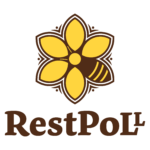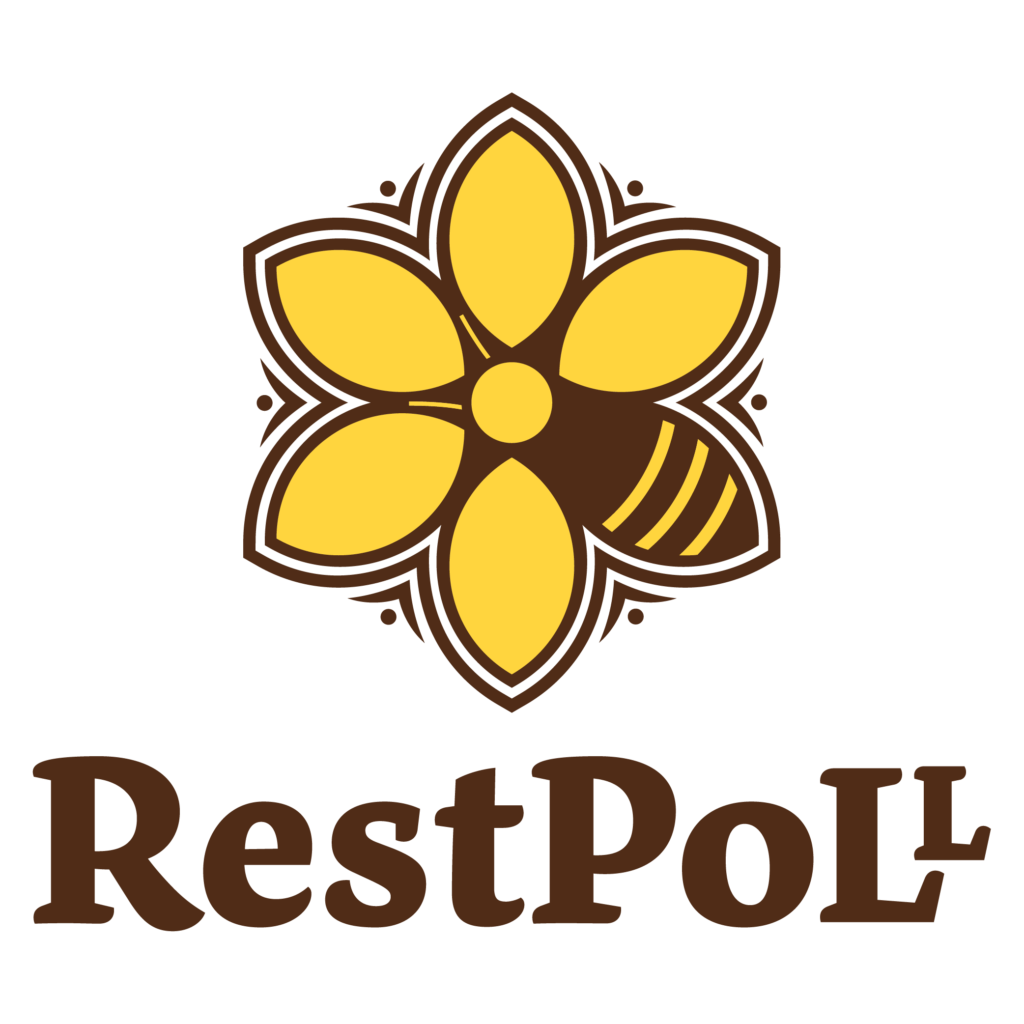In this article you will learn more about the RestPoll project, specifically regarding the importance of pollinators, restoration measures and the essential collaboration with stakeholders.
1. Importance of pollinators
Restoring pollinator habitats in Europe is not only important for agricultural yields and food security, but also for wild plants and other organisms that directly or indirectly depend on pollinators.
Food
Pollinators help fertilize a wide variety of crops including fruits, vegetables, nuts and seeds. Pollination enhances crop diversity, which is essential for a nutritious diet, as many pollinator-dependent crops provide vital vitamins and minerals. Without pollinators, the availability and variety of many important food sources would diminish, potentially compromising human nutrition.
In addition to supporting food production, pollinators contribute to the economic and environmental sustainability of agriculture. The global economic value of pollinated crops is immense, and the loss of pollinators would raise production costs, increase food prices, and strain food systems.
For more information visit the EU Pollinator Information Hive.
Biodiversity
Wild plants depend directly on pollinators for reproduction, as many species require pollinators to transfer pollen between flowers. This process ensures the production of seeds and fruits, allowing plants to thrive and maintain their populations. Since around 90% of flowering plants rely on pollinators, their role is critical for preserving plant biodiversity, which is essential for healthy ecosystems.
Indirectly, many organisms depend on pollinators because plants provide food, shelter, and other resources for animals and insects. By supporting plant reproduction, pollinators help sustain the food chains and ecosystems that countless species rely on. Pollinator-driven biodiversity helps regulate environmental functions like water cycles and soil health, making ecosystems more resilient and ensuring the survival of a wide range of species.
2. Restoration measures
We have identified 17 case study areas in 14 European countries with multiple restoration measures, consisting of existing agro-environmental schemes and novel, prospective schemes such as payments for ecosystem services, such as restoration-mediated pollination services, in agricultural landscapes to conserve biodiversity in general and wild pollinators in particular.
The most common measure implemented is creating flowering resources by adding a flower strip or meadow into the agricultural landscape. However, other measures, such as creating nesting sites, such as bee hotels or bare ground, agroforestry, or management changes, reduced mowing, ploughing, or pesticide use, are all measures that help support the pollinator community.
Find out more about flowering strips or nesting sites.
Output
The biggest output will be the Pollinator Restoration Toolbox, which will be a database of different successful pollination restoration tools that farmers and landowners can use to determine which tools are appropriate for their land/area. By developing a toolbox, the RestPoll consortium will reinforce the status of Europe as a global leader in adaptive management including rapid assessment evaluations for pollinator restoration and develop transferable approaches for countries both within and beyond Europe.
Other outputs include calculating the economic value of pollination service, determining a good labeling system, and setting up a network of farmers/landowners that work together towards a specific goal related to pollinator restoration.
3. Essential collaboration with stakeholders
RestPoll combines the expertise of natural and social scientists, NGOs, businesses, and ministries. Stakeholders along the food value chain are engaged through participatory approaches at diverse social, ecological, and political scales. We are interested in bridging the gap and reconsidering the traditional distinction between ‘knowledge generators’ (i.e. scientists) and ‘knowledge users’ (i.e. farmers and landowners).
Stakeholder engagement is essential because stakeholders bring in practical experience and local knowledge. This allows us to identify a broader and more nuanced set of real-life challenges and solutions in and views on pollinator restoration efforts and to make sure that project activities, results, and recommendations address user needs and concerns and are actually feasible or applicable. Farmer and landowner involvement also provides valuable access to a larger diversity of farmlands for research on pollinator habitats and allows to better link restoration activities with on-farm realities.
Find out more about our collaboration with stakeholders.
How to get involved
For more information on how to get involved in your local area
contact RestPoll coordinator Alexandra-Maria Klein:
alexandra.klein@nature.uni-freiburg.de

